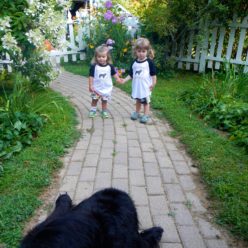When I initially arrived at Carroll with my “ABD” degree (All But Dissertation) in 1978 it made much sense to me and to my chair, Dr. Ralph Parsons, to teach what I had specialized in during graduate school at The Ohio State University.

My introduction to the field of social psychology had come while I was an undergraduate at Oberlin College, and I hoped to give back to my Carroll students the excitement that I felt at that time of actually being a social psychologist.
At Oberlin my academic adviser, Ralph Turner, was a self-described “arm-chair” social psychologist—i.e not at a researcher—interested in creating dithering devices to facilitate learning that would cascade within and outside the classroom. As an adviser and professor Ralph Turner was kind to and patient with me. He was a role model of a dynamic teacher and a voracious reader who regularly wrote book reviews and who played a leadership role in Division 2 (Teaching of Psychology). He encouraged my intellectual curiosity and accepted me as I was, unformed and uninformed but eager to learn. He introduced me to the idea that psychological principles of persuasion and attitude change could be used to make the world a better place—or a worse place if applications of these same social psychological principles and findings failed to be guided by ethics.
These were my most (in)formative years especially, perhaps, because I was taking all my classes “credit/no entry” (that is, ungraded). This freedom from being graded allowed me to read voraciously, to be exposed first hand to social justice and war/peace issues, and to read and reflect upon works such as Postman and Weingartner’s Teaching as a Subversive Activity. I was also at that time inspired by APA President George Miller’s 1969 address advocating that we should give psychology away.
While a perennial graduate student at Ohio State I was surrounded by students who already were far better scientists than I was or would ever become and who subsequently have made major contributions to the field. Once again I was heavily influenced by personal relationships formed with a few key faculty—in particular by my academic adviser, mentor, and friend Tom Ostrom and more indirectly but in many positive ways, by the teachings by example of Tony Greenwald. Both of them, in their kind but brutally candid way convinced me that my calling most likely would be in teaching rather than in conducting creative, seminal, path-breaking research. And here I am thirty-some years later!
It pleases me that a number of Carroll students have chosen to pursue advanced graduate degrees in social psychology (e.g. Mark Klinger, Pam Propsom, Deana Julka, Darcy Reich, Jenny Welbourne, Cathy Carnot-Bond ) or in related disciplines (e.g. Mike Schwerin). Some of them have developed enviable scholarly reputations. But my goal in my experimental social psychology class is not so much as to be a pipeline to graduate schools in social psychology as to attempt to provide a capstone-like experience in their developed abilities of thinking about research.
I’m at a point of giving serious consideration to changing what I teach and how I teach my experimental social psychology course—if I continue to teach it. Two or my colleagues have a professional identity with my discipline, and I’m sure that they could step in. One possibility is to teach it entirely based upon readings (e.g. classic studies and recently published articles). Such a change in format might allow for more extensive, daily discussion and the potential development of student research ideas resulting from such discussion. This possibility would work best, however, if the class were small. There are years, though when I’ve had up to 35 students.
A second possibility is to teach it from a much more global, international perspective. A third possibility is to dramatically introduce hands-on Internet-based resources and experiences—drawing upon my recent interest in developing Web 2.0 learning tool. A good start in identifying some such resources has already been made by Scott Plous in his development of the Social Psychology Network and is reflected in the work of Jonathon Mueller in developing teaching resources for social psychology. And, of course, I could draw more upon the expertise of former students who are active experimental social psychologists. (Are you interest in some good students directed to you? Let’s connect!)
I welcome input from students and former students concerning which directions I should explore. How best should I proceed to give social psychology away?


0 thoughts on “Giving Away (Social) Psychology”